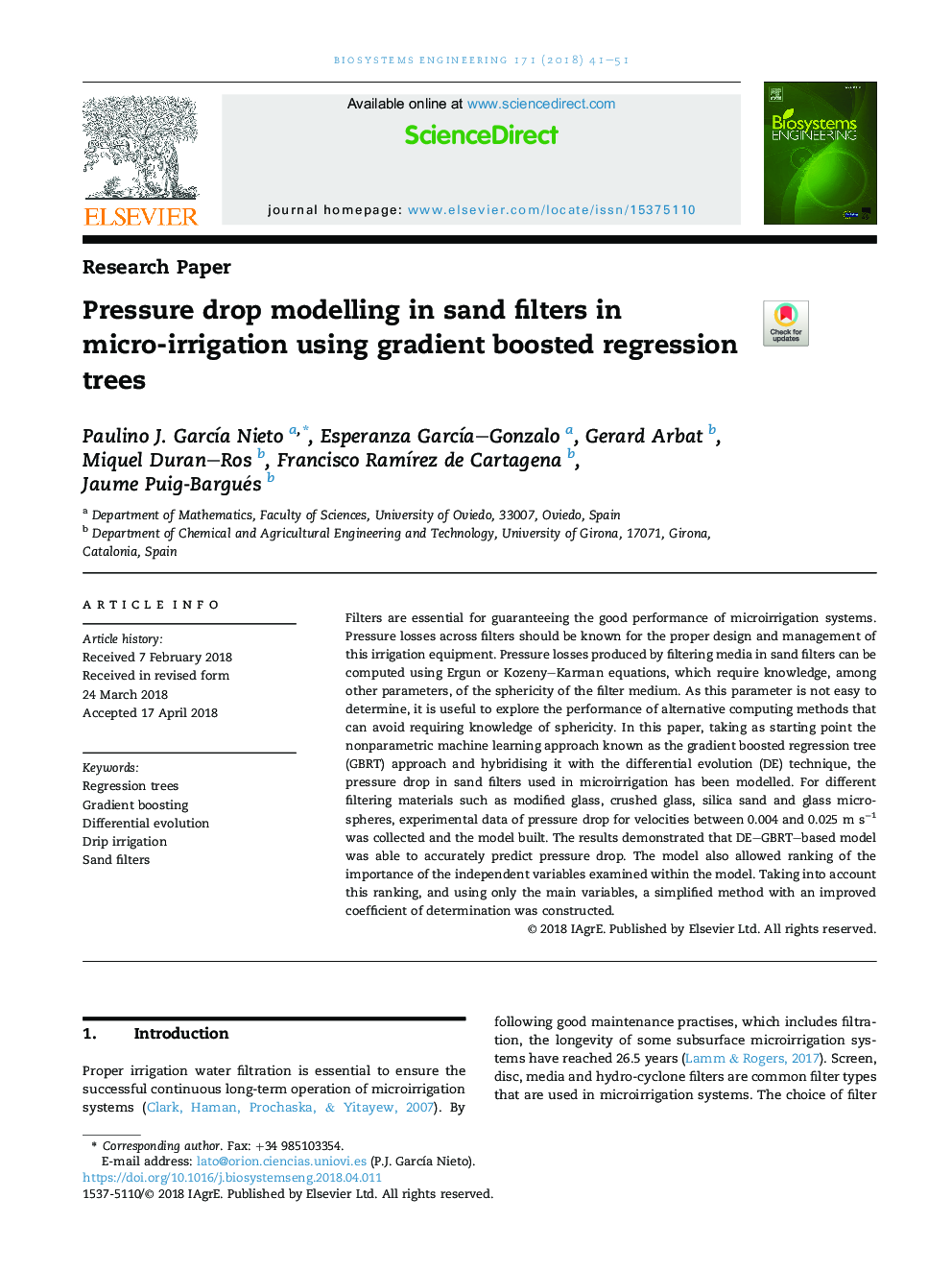| Article ID | Journal | Published Year | Pages | File Type |
|---|---|---|---|---|
| 8054654 | Biosystems Engineering | 2018 | 11 Pages |
Abstract
Filters are essential for guaranteeing the good performance of microirrigation systems. Pressure losses across filters should be known for the proper design and management of this irrigation equipment. Pressure losses produced by filtering media in sand filters can be computed using Ergun or Kozeny-Karman equations, which require knowledge, among other parameters, of the sphericity of the filter medium. As this parameter is not easy to determine, it is useful to explore the performance of alternative computing methods that can avoid requiring knowledge of sphericity. In this paper, taking as starting point the nonparametric machine learning approach known as the gradient boosted regression tree (GBRT) approach and hybridising it with the differential evolution (DE) technique, the pressure drop in sand filters used in microirrigation has been modelled. For different filtering materials such as modified glass, crushed glass, silica sand and glass microspheres, experimental data of pressure drop for velocities between 0.004 and 0.025 m sâ1 was collected and the model built. The results demonstrated that DE-GBRT-based model was able to accurately predict pressure drop. The model also allowed ranking of the importance of the independent variables examined within the model. Taking into account this ranking, and using only the main variables, a simplified method with an improved coefficient of determination was constructed.
Related Topics
Physical Sciences and Engineering
Engineering
Control and Systems Engineering
Authors
Paulino J. GarcÃa Nieto, Esperanza GarcÃa-Gonzalo, Gerard Arbat, Miquel Duran-Ros, Francisco RamÃrez de Cartagena, Jaume Puig-Bargués,
